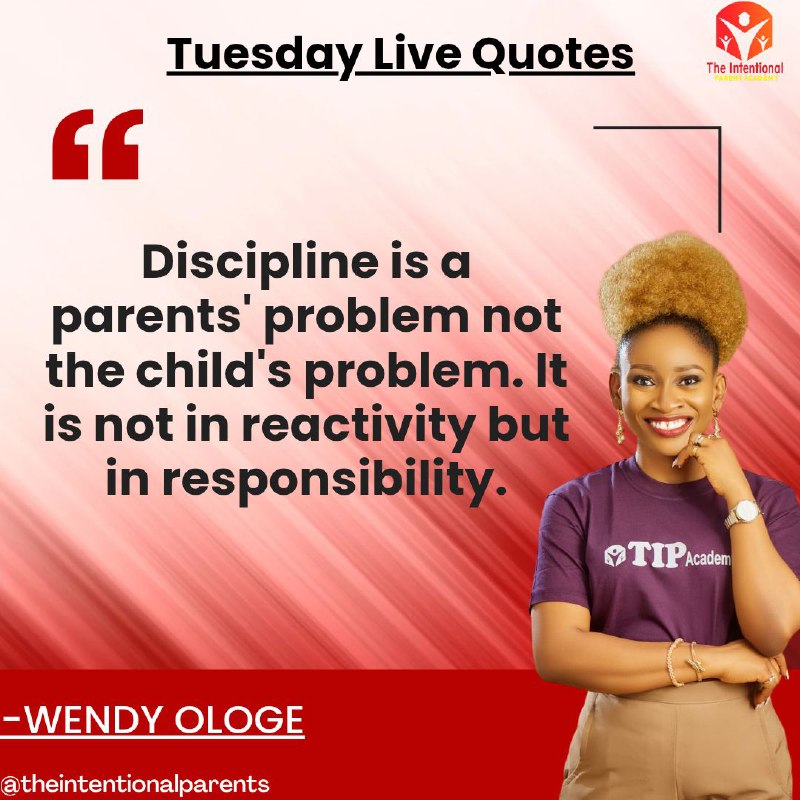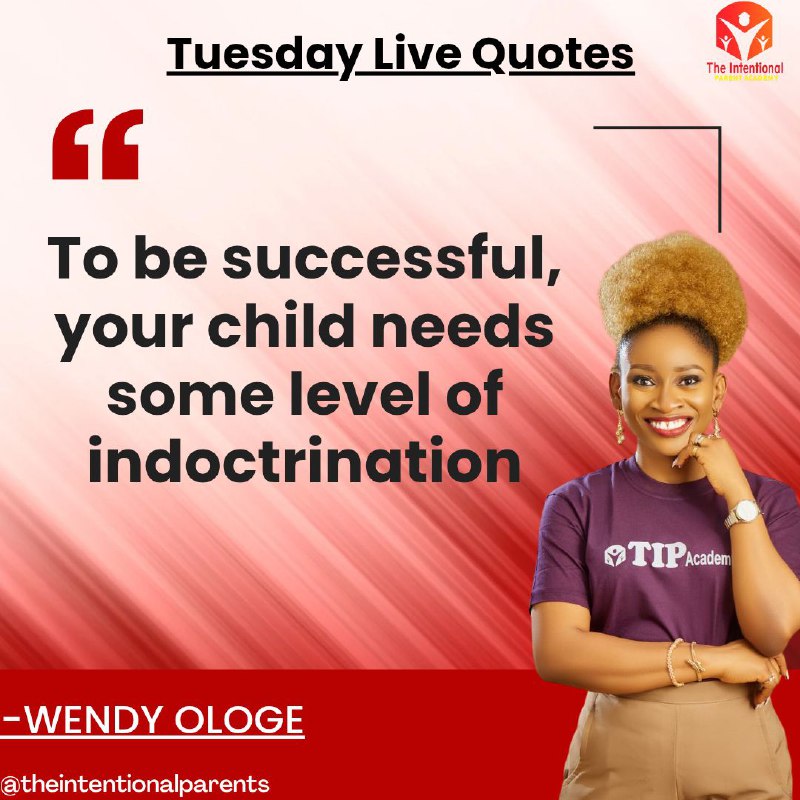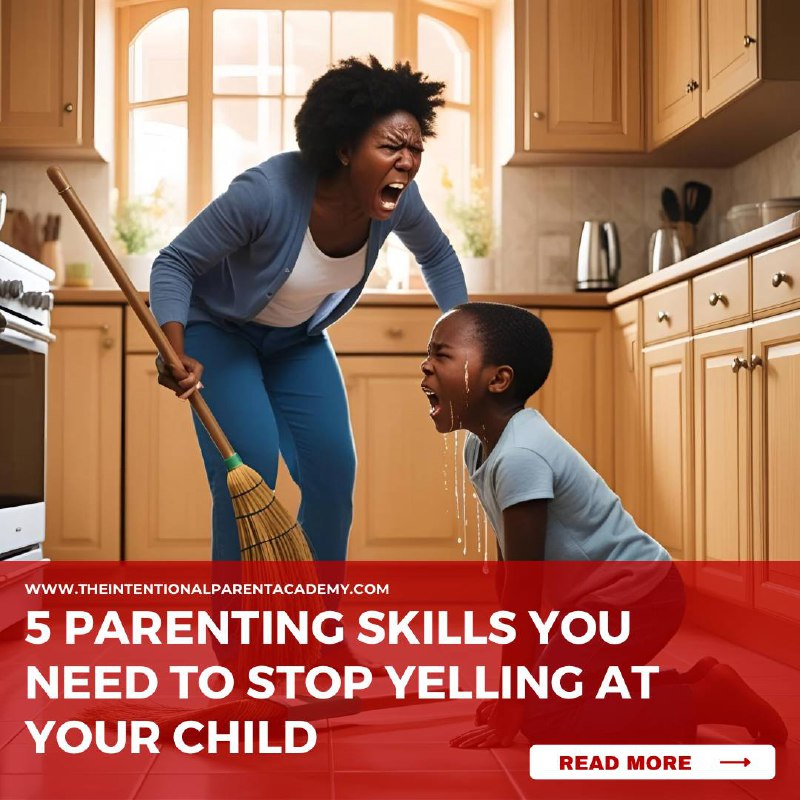5 Parenting Skills You Need to Stop Yelling at Your Child
“Yelling stops when you become more aware than afraid, more curious than controlling, more strategic than stressed.” – Wendy Ologe.

Let’s be honest, no parent wants to yell. Yet, somehow, it happens. We find ourselves raising our voices more times than we’d like to admit and then feeling awful afterward. It often feels like yelling is the only way to be heard. But what if yelling isn’t a sign of control but of disconnect?

“Discipline is not about how you control your child, but it’s about connection.”
Children are wired to thrive in emotionally safe environments. Yelling though common disrupts this safety. Research shows that constant yelling can activate a child’s stress response system, releasing cortisol (the stress hormone), which over time can alter brain development, particularly in areas related to emotional regulation and decision-making.
Still, many parents will say, “Well, it was done to me, and I didn’t die.” True but survival isn’t the same as thriving. And just because something was normalized in the past doesn’t mean it was healthy.

The truth? It’s absolutely possible to move from reaction to reflection, from yelling to calm connection. But it requires intentional skill-building. Here are 5 essential parenting skills that can help you stop yelling and start connecting.
- Metacognitive Control: Thinking About Your Thinking
The first step to changing any behavior is awareness. Metacognitive control is the ability to reflect on your own thoughts and mental state in the moment. When you pause to ask yourself, “Why am I so triggered by this behavior?” or “What am I really feeling right now?” you interrupt the automatic cycle of reaction.
Instead of going from 0 to 100, you build in a thoughtful pause—a space where calm choices can be made. This skill is like a mental mirror, helping you see your inner landscape clearly, so you don’t unconsciously project it onto your child.
- Emotional Reasoning Skills
You cannot regulate what you do not recognize. That’s why emotional reasoning is crucial. It’s the ability to identify, understand, and name your emotions accurately.
“If you cannot name your emotions, you cannot tame it.”
Many of us were never taught to recognize emotions beyond “happy,” “sad,” or “angry.” But your body holds emotional clues tight shoulders, clenched jaws, racing thoughts. Learning to read these signs and name the emotion (“I feel overwhelmed” or “I feel disrespected”) gives you the power to choose your next response.
When you model emotional literacy, you teach your child to do the same. You show them that big feelings aren’t dangerous—and that they can be managed with grace.
- Perspective-Taking (Cognitive Empathy)
This is about getting into your child’s shoes—not just emotionally, but cognitively. What does the world look like through their eyes, developmentally and emotionally?
When your child throws a tantrum, they aren’t trying to manipulate you, they’re struggling with emotional overload. When they ask “why” a hundred times, they aren’t being annoying they’re building cognitive skills.
Perspective-taking helps you respond from understanding, not irritation. It invites curiosity over judgment and builds trust in your relationship.

4. Strategic Thinking: Spotting Patterns and Triggers
If you find yourself yelling in the same kinds of situations repeatedly, it’s time to put on your detective hat. Strategic thinking involves stepping back to look for patterns.
What time of day do the meltdowns happen? Are you usually hungry, tired, or distracted when yelling occurs? Are there certain behaviors that set you off more than others?
These patterns point to triggers. And when you can anticipate your triggers, you can create strategies to manage them whether it’s building in breaks, changing routines, or simply acknowledging that you’re emotionally charged and need a moment.
Control isn’t about suppressing emotion, it’s about choosing your response to it.
5. Collaborative Insight: Solving Together
You’re not in this alone and your child isn’t the enemy. Collaborative insight is about engaging your child in age-appropriate conversations and solutions.
Instead of top-down commands, you create a shared understanding. You might say, “I noticed we both got upset during clean-up time. How can we make that smoother tomorrow?”
This kind of collaborative problem-solving builds respect, responsibility, and emotional intelligence. It teaches your child that conflicts can be resolved peacefully—and that their voice matters.

Final Thoughts: From Yelling to Connection
“When you yell, your child hears fear. But when you stay calm, your child feels safe.”
Yelling may get short-term compliance, but it chips away at long-term connection. The goal isn’t perfection, it’s progress. Every step you take toward emotional skill-building is a step away from reactive parenting and a step toward a peaceful, connected home.
Change takes time. It requires indoctrination, a deep and consistent reprogramming of what parenting is and can be. It’s not enough to know these skills. You must practice them. Daily. Intentionally. Especially on the hard days.
And when you do, you’ll find that the peace you crave isn’t in controlling your child—but in knowing how to calmly lead them, with clarity, connection, and love.

Join now!
Pay ₦15,999 to GTBank: 0509494057 (The Intentional Parent Academy)
Send proof of payment via WhatsApp:
+2349036633600 / +2347036393160 / +2348169725632
Prefer Online Payment? Click Here:
https://theintentionalparentacademy.selar.com/NoYellingChallenge
Let’s make learning easier and more enjoyable for your child!
Don’t let multitasking hold them back—register now and discover strategies that will set your child up for success!
Watch the full video below!
Have you registered for the Inner Circle Program 2026?

REGISTER FOR 2026 INNER CIRCLE PROGRAM!
Registration for the 2026 Inner Circle has commenced.
You can book your slot and spread your balance within the year.
Booking fee for single is #10000. ($10)
Complete fee for one parent is #120,000. ($120)
Booking fee for couples is #20,000. ($20)
Complete fee for couples #200,000. ($200)
You can book here:
https://theintentionalparentacademy.selar.co/Innercircle2025BOOKING
Or You can make direct payment to 1310192708 (Zenith Bank). The Intentional Parent Academy, then send a chat to: +2349135714816
International payments can be made through Zelle or PayPal using the email wendyologe@gmail.com
Want to make a one-time payment?
For singles slot pay here
https://theintentionalparentacademy.selar.co/InnercircleRegistrationSinglesComplete
For couples slot:
https://theintentionalparentacademy.selar.co/Innercirclecouplescomplete
Please Note: Fee must be completed before being admitted into the Inner Circle Program which starts on the 1st of December. Don’t forget admission is once a year.


